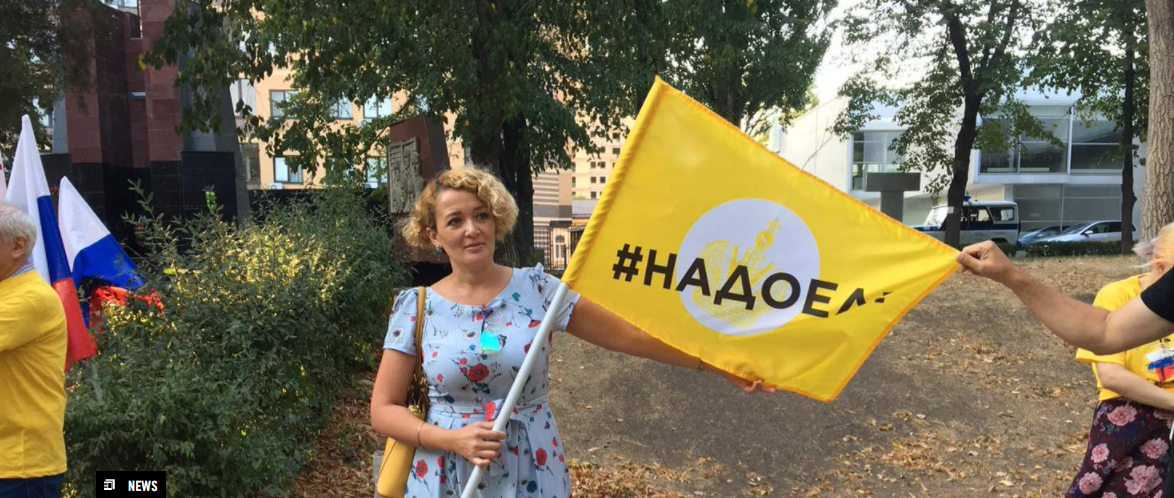A Russian court today found human rights defender and prisoner of conscience Anastasia Shevchenko guilty of “organizing activity of an undesirable organization” and handed down a four-year suspended prison sentence. Responding to the conviction Amnesty International’s Moscow Office Director, Natalya Zviagina, said:
“This decision is a travesty of justice. Anastasia Shevchenko has committed no crime. She should have never been deprived of liberty in the first place, as she was criminally persecuted solely for peacefully exercising her human rights. Her conviction must be quashed.”
“Anastasia Shevchenko has already suffered unimaginably at the hands of Russia’s deeply flawed justice system. She has been under house arrest for over two years, and been subjected to humiliation and intrusive surveillance in her own home. Tragically, Anastasia’s teenage daughter died during the early days of her house arrest and Anastasia was not permitted to be with her in her final days.
“Anastasia Shevchenko has been held hostage by a cynical, cruel, and inhumane system whose sole purpose is to suppress, intimidate and crush Russia’s bravest and strongest activists. And she will now have a criminal record.
“The Russian authorities’ politically motivated persecution of peaceful activists must stop immediately. The discriminatory laws on “undesirable organizations” and “foreign agents”, which have been wantonly abused to crush peaceful dissent, must be abolished.”
“Russian authorities must immediately and unconditionally release all those detained solely for peacefully exercising their human rights. Authorities should respect, protect, promote and fulfil the human rights of everyone including the rights to freedom of expression, association and peaceful assembly.”
Background
On 18 February, the Oktyabrsky District Court of Rostov-on-Don (southern Russia) convicted prisoner of conscience Anastasia Shevchenko, former co-ordinator of the Open Russia civic movement, under Article 284.1 of the Russian Criminal Code (“organizing the activities of an undesirable organization”) and sentenced her to four-year suspended imprisonment.
Anastasia Shevchenko was the first person in Russia to be criminally charged under the law on “undesirable organizations” that came into force in May 2015. The law gives the government the power to arbitrarily ban activities of foreign or international NGOs in Russia, under vaguely defined security pretext and without any judicial review, and criminalize any further association with such organizations, however tenuous. This law was deployed to ban the Open Russia movement, founded by exiled critic and former prisoner of conscience Mikhail Khodorkovsky, alongside 30 other foreign organizations.






















